Comparing Economy vs Quality Oil Filters
For most of us, oil filters are probably something we never think about.
We know that when we change our engine oil, the oil filter also needs to be replaced as well. What kind of filter should your mechanic use? Does it even matter? An oil filter is an oil filter, right? Wrong! Nowhere else in the automotive parts world do we see such a range in quality – from the good to the very bad – than we do with oil filters. You might be surprised to know that many so-called automotive “professionals” are installing oil filters which don’t even come close to the caliber of your vehicle’s original filter.
Across the country, this negligence is costing Canadians hundreds of thousands – maybe even millions – of dollars every year in the form of excess engine wear and vehicles that deteriorate before they should. How do these second-fiddle “mechanics” get away with this? We’ll explain that at the end of this article.

1) The filter media is what actually traps dirt and contaminants. It is supported by the end caps and centre support tube.
2) The bypass valve redirects oil around the oil filter in the event that the filter becomes clogged.
3) The anti drain-back valve prevents oil draining back into the engine when it is shut off, in order to prevent dry starts, which are the leading cause of engine wear.
But now, let’s get right to it: We wanted to do something totally cool and cut open 8 of the most popular oil filters on the market, to show you how they work and the differences between them.

To keep things consistent, we purchased all of the filters to fit the same popular vehicle; a 2014 Ford F-150. Like most modern vehicles, this F-150 is equipped with an oil life monitor that calculates oil deterioration based on how and where you drive. Drivers who frequent the highway and drive regularly will see the oil life monitor stretch their oil changes out to about 15,000 km, since this type of driving is easier on the engine oil. Drivers who do mostly short trip and around-town driving will notice their “change oil” message coming up closer to 6000 km.
Because – like most modern vehicles – the F150 has an oil change interval longer than 5000 km, its oil filter requires certain features keep working properly all the way up until the next oil change:
- For any oil change interval longer than 5000 km, the filter’s anti drain-back valve should be made of silicone instead of cheap nitrile material.
- The internal construction needs to be strong enough to last through hundreds of heat cycles.
- The filter media needs to be dense and plentiful enough to continue trapping dirt through the entire life of the filter, without plugging. Once the filter is plugged, it will enter “bypass mode” where it stops filtering your oil. This is when engine wear really starts to take place quickly!
Without further ado, here are the oil filters that we tested, and how we ranked them from best to worst!
1st Place: Wix (Napa Gold)
Wholesale cost (to a professional shop): $6.51
Filter media: Glass enhanced cellulose
Filtration efficiency: 99% of particles above 23 microns; 18 gram capacity
Anti drain-back valve: Silcone
Recommended change interval: 6,000 – 16,000 km or 1 year
Truly compatible with this vehicle: Yes
Full disclosure: These are the oil filters that we use in our shop. For that reason, though, it was reassuring to open the filter up and find such quality on the inside. The filter just impresses when you take it apart.
The Wix filter uses the best filter media of all the filters in our comparison, capable of trapping the most dirt and contaminants. Construction of the filter element is very solid, with metal end caps and a metal seamless, spiral-wound centre core reinforcing the media. The bypass valve is all metal too, and looks very good. The anti-drainback valve is made of silicone, and features a robust design. Finally, everything is held together with a metal coil spring; a design that is generally considered better than the steel wave springs found in most oil filters.
2nd Place: Ford Motorcraft
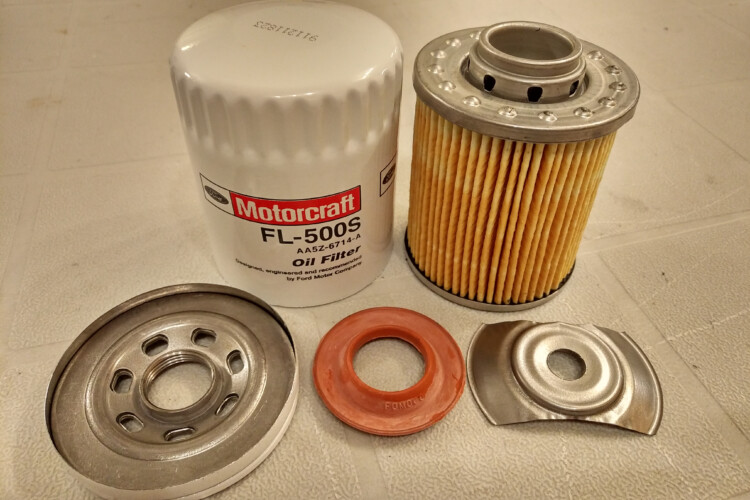
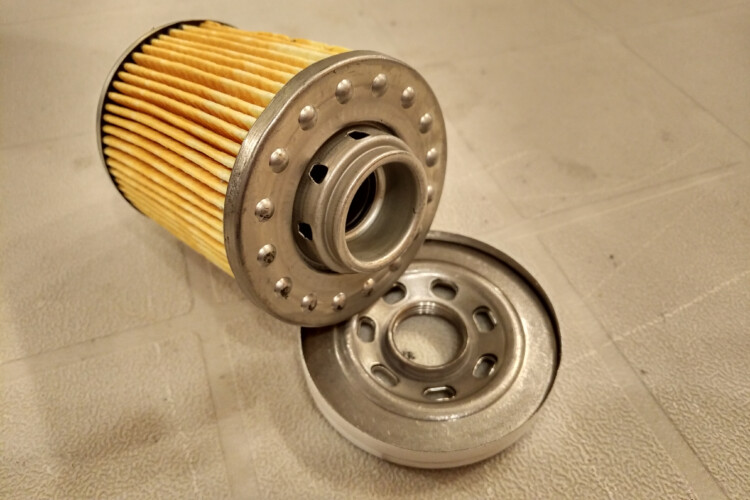
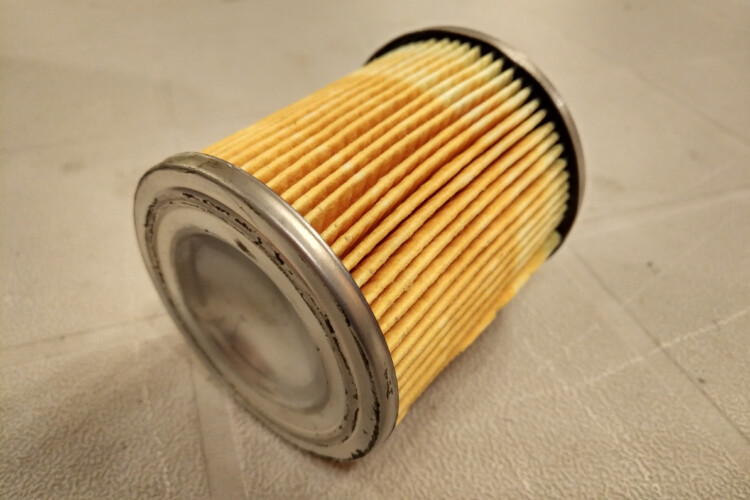
Wholesale cost: $9.92
Filter media: Cellulose and polyester blend
Filtration efficiency: 80% of particles above 20 microns (Ford advertised); 93% at 20 microns (independent testing); 12 gram capacity
Anti drain-back valve: Silcone
Recommended change interval: 12,000 km or 1 year
Truly compatible with this vehicle: Yes
This is the OEM (factory) filter for this truck, and the filter that all others should be compared to. It’s a very good quality part, as you’ll see in the photos.
3rd Place: Fram
Wholesale cost: $6.12
Filter media: Glass enhanced cellulose
Filtration efficiency: 95% of particles above 20 microns
Anti drain-back valve: Silicone
Recommended change interval: OEM (see notes below)
Truly compatible with this vehicle: Yes, but not your best choice.
If we had done this comparison several years ago, Fram oil filters would have ranked very near the bottom of our list. However, the Fram brand is now being manufactured by a different company and the filters have received major upgrades, including a much better filter media and a silicone anti drain-back valve.
The construction still isn’t great, though: Fram filter elements still feature fiberboard end caps and a lot less filter media than most of the other filters in our comparison. The centre core of the filter is steel, but it’s not the strong, seamless design found in the filters above. Fram states that these filters are designed to last for any manufacturer-specified oil change interval, and we can’t really disagree. While this filter does technically check all of the boxes in terms of Ford’s requirements for this truck, the above filters are probably a better choice.
Tie for 3rd: Motomaster
We picked up one of Canadian Tire’s new Motomaster oil filters for this comparison, only to discover that they are manufactured by the same company (and are exactly the same) as the Fram filter. The Motomaster filter is cheaper, though.
4th Place: Pennzoil
Wholesale cost: $4.12
Filter media: Cellulose
Filtration efficiency: 95% of particles above 20 microns; 13 gram capacity
Anti drain-back valve: Nitrile
Recommended change interval: Up to 8,000 km, 3-6 months
Truly compatible with this vehicle: No
These are the filters used by one of Canada’s largest quick-lube chains, who also operates inside a major department store.
The Pennzoil filter is actually a very nicely constructed filter; manufactured by the same company that builds the OEM Motorcraft filter. The internal construction is all metal; including a strong spiral-wound centre core. Filter media is of good quality, and there’s lots of it. The filter features a conventional spring-operated bypass valve as well. Unfortunately, the filter just lacks the features required to go the distance and survive Ford’s recommended oil change intervals. The Penzoil filter would make a good choice for someone on a budget, who is looking to change their oil every 5000 km or so.
5th Place: Napa Proselect
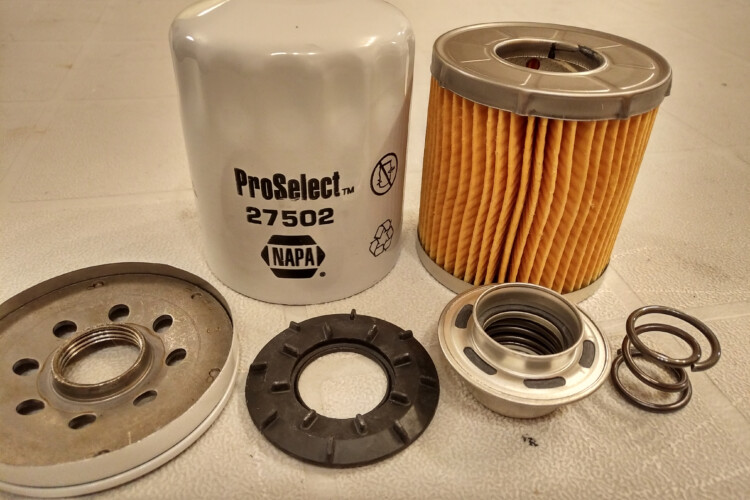
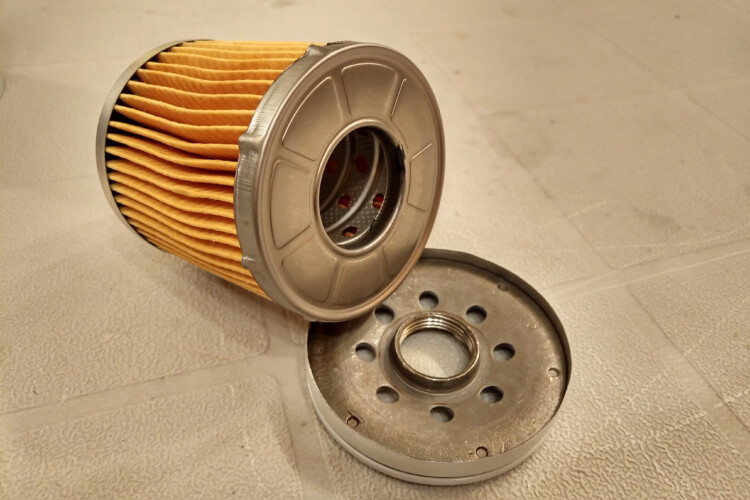
Wholesale cost: $3.99
Filter media: Cellulose
Filtration efficiency: 95% of particles above a whopping 29 microns; 13 gram capacity
Anti drain-back valve: Nitrile
Recommended change interval: 5000 km recommended; 8000 km max
Truly compatible with this vehicle: No
This is an economy filter that usually isn’t sold to the public, but only to automotive professionals. (Doesn’t that seem kind of backwards?) Many of our local competitors use these filters, so be sure to ask a few questions before your next oil change. This same filter is also sold under the Parts Master brand in Auto Value stores, and as the Wix Pro-Tec in some American chains. It’s really hard to rank such a nicely-built filter below the Fram twins above, but we had to give the nod to Fram’s better filter media and silicone anti-drainback valve. While the Proselect features the same high-quality construction as the Wix filter, it offers much lower filtration efficiency and uses a cheap nitrile anti-drainback valve.
This is a great example of how just because two products roll out of the same factory; that doesn’t mean they are of equal quality. The Proselect filter is manufactured by Wix Filtration Corp, who of course builds the Wix filter above. However, the Proselect filter is manufactured to very different standards; Wix says it traps 50% less dirt than their standard filter, and recommends an oil change interval of just 5000 km with the Proselect.
6th Place: Luberfiner
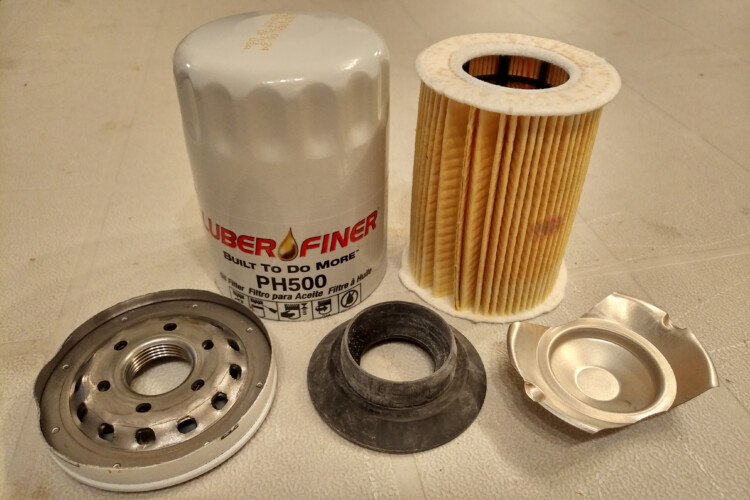
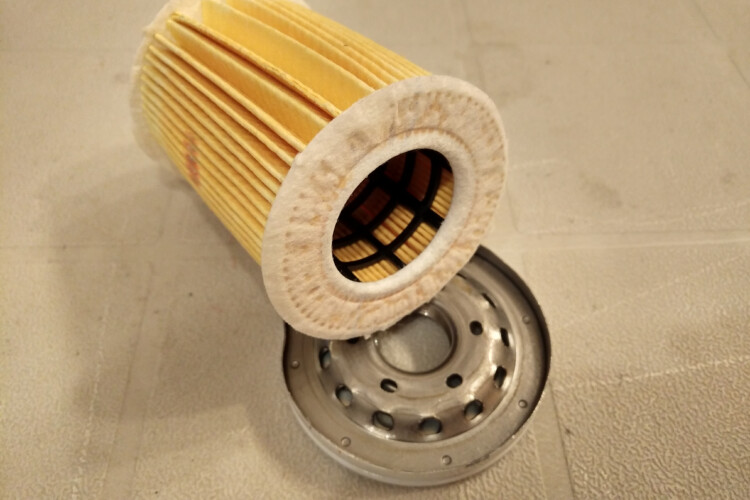
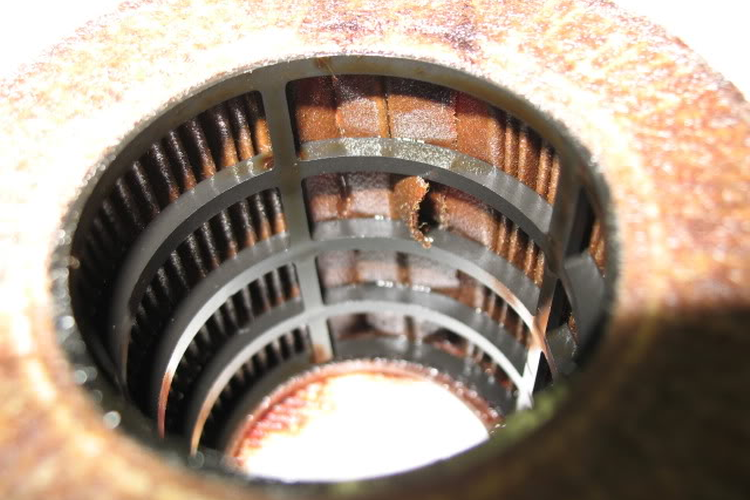
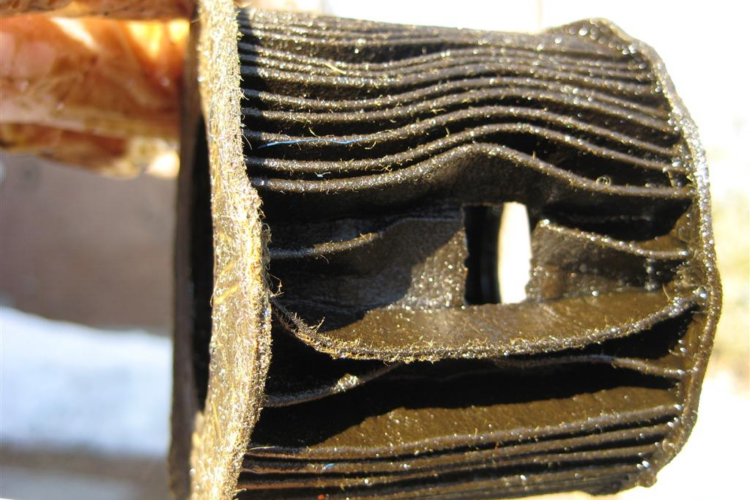
Wholesale cost: $2.01
Filter media: Cellulose
Filtration efficiency: Not published
Anti drain-back valve: Nitrile
Recommended change interval: 5000 km recommended; 8000 km max
Truly compatible with this vehicle: No
These are the oil filters used by Airdrie’s second-busiest quick lube chain. They are manufactured by Champion Laboratories just like our Service Champ filter below, and on the inside are basically the same as that filter. You’ll also find the same filter on sale under the budget Defense brand, typically not sold to the public. (At least Luberfiner lists the correct size filter for our 2014 F-150, though. You’ll have to keep reading…)
These are an “economy” filter in every sense of the word, with a cheap cellulose filter media; fiber/paper filter element end caps; a plastic cage reinforcing the media instead of a metal tube; and a nitrile “combo valve” that doubles as both a bypass valve and an anti-drainback valve.
We do not recommend using oil filters like this unless you have no other option, and the next oil change should be performed no later than 5000 km; regardless of what your oil life monitor indicates.
Last Place: Service Champ
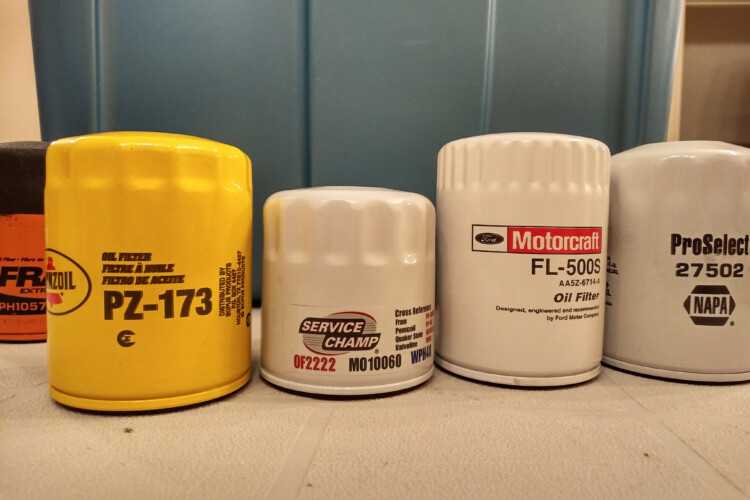
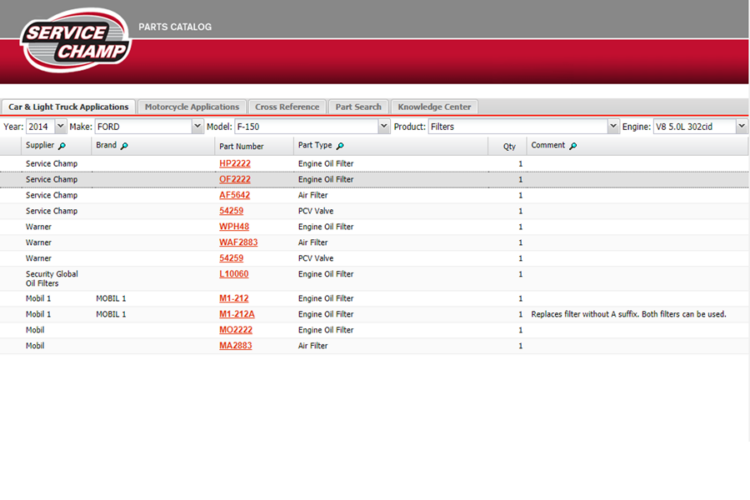
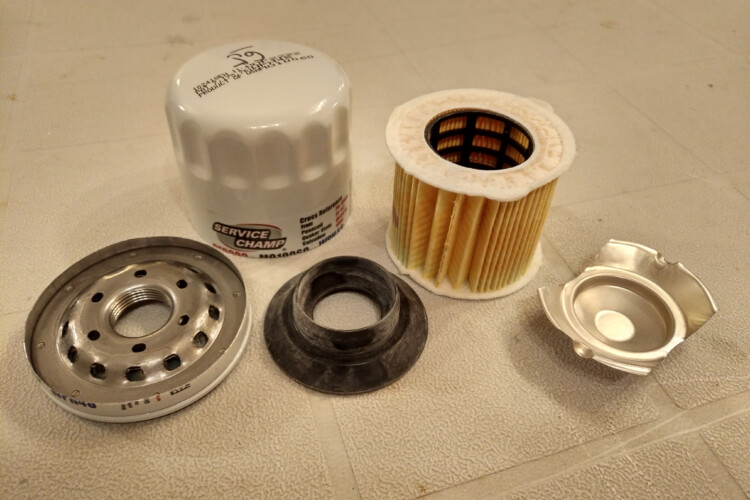
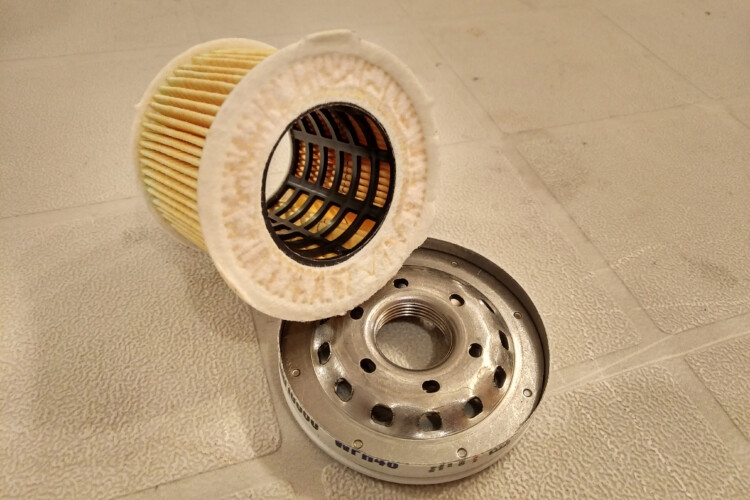
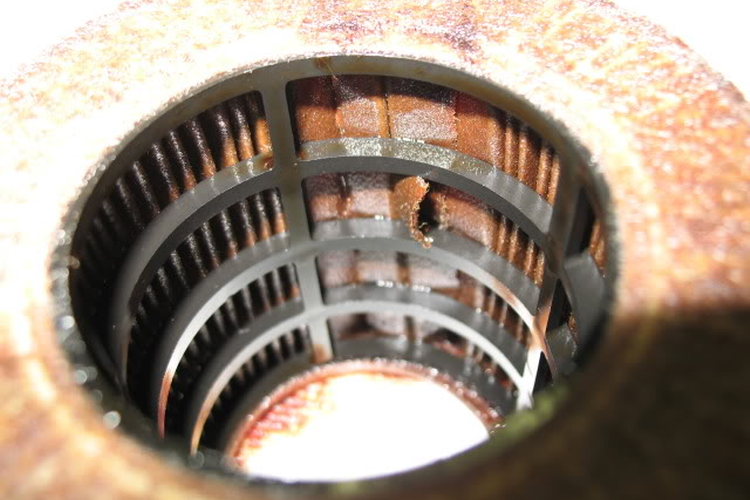
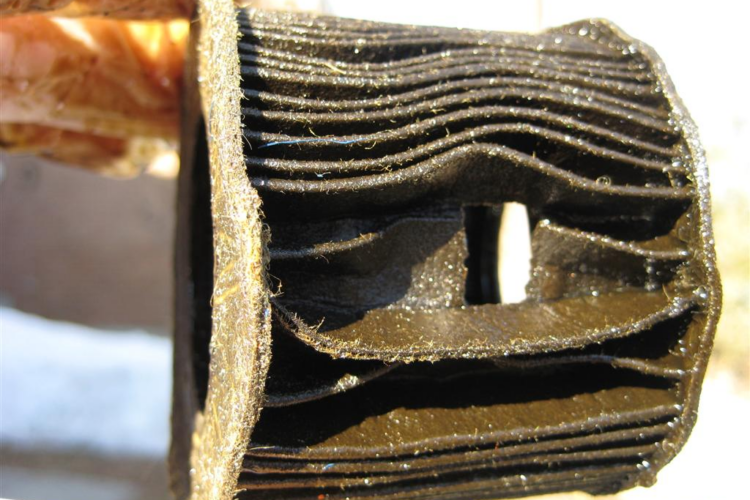
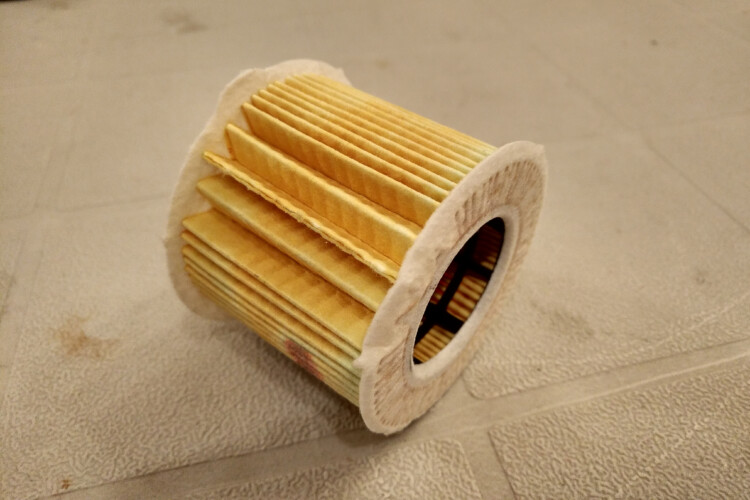
Wholesale cost: $1.62
Filter media: Cellulose
Filtration efficiency: Not published
Anti drain-back valve: Nitrile
Recommended change interval: 5000 km
Truly compatible with this vehicle: Definitely not!
These are the oil filters used by the Airdrie’s busiest quick lube chain, with two locations here in town. (We actually bought this filter from one of those locations.) These super-budget filters are not for sale to the public, and not available online.
This is an interesting filter to include because it illustrates a common lube shop problem that we see all the time. Do you notice how much smaller this filter is than the others? This isn’t a mistake; it’s because some lube shop filters are listed by their thread and gasket size, not by the vehicle. That means if it will physically screw onto your vehicle, it gets used; with no consideration to the media size, bypass valve setting, etc. As you’ll see in the screenshot from the Service Champ website, this is actually the filter listed to “fit” our 2014 Ford F-150.
On the inside, the Service Champ is very much an economy filter, where every corner has been cut in order to reduce costs. Not only is this filter a poor choice for any oil change interval longer than 5000 km, but it will also do an inferior job protecting your engine during the time that it is installed. As one automotive writer recently said, “If you don’t care about your engine, then this is the filter to use.”
So, why do all these cheap filters exist?
We hope you enjoyed this presentation! It’s interesting to note that out of the 8 filters we purchased, we have two filters which we’d definitely recommend for this Ford F-150; two that sort of do the job; and four that we definitely wouldn’t recommend. Why are so many folks in the industry installing these inferior filters, and how do they get away with using a clearly inferior product?
The “why” comes down to consumers: Some drivers are concerned chiefly with price, and less concerned about quality or the longevity of their vehicle. Other driver’s might not realize there’s a difference, and haven’t learned to ask their shop what kind of oil filter is being installed. We hope this article helps with this!
The “how” – as in how shops get away with installing an inferior filter – comes down to the fact that engine wear happens slowly over time. Engine wear is invisible to the consumer, and doesn’t show itself until years down the road. It’s the difference between your timing chain lasting 250,000 km, or lasting 150,000 km – or your whole engine lasting 500,000 km instead of 300,000 km. By the time a failure has happened, the oil filter has been replaced dozens of times and you’ll never be able to point the finger at a specific part.
Are cheap oil filters truly “Warranty Approved”?
Lots of quick lube shops have a big sign outside saying their services are warranty approved for newer vehicles. Usually, that claim comes with a big asterisk. In the case of our F-150 here, your warranty is usually still maintained as long as you change that cheap oil filter every 5000 km, since that’s all it is designed for. But if you follow the F-150’s oil life monitor and change the oil at 15,000 km, you’re no longer protected. This is why most lube shops will install a window sticker with a recommended 5000 km oil change, regardless of the vehicle and its actual requirements. (You can see how it might be less expensive in the long run to just purchase a better oil filter!)
The makers of these economy oil filters all offer some sort of guarantee, where they pledge to repair any engine damage that results from use of their filters. However, as we discussed above, engine wear happens slowly and that oil filter is usually long gone by the time a failure happens. In the event of a more sudden failure, the guarantee is still mostly meaningless because actually proving what caused an engine failure is next to impossible. These companies also know that most consumers will never spend the thousands of dollars to have their engines disassembled on the off chance the filter manufacturer might pay to have it repaired.
As engines become more complex, car manufacturers are starting to care a little more about what type of oil filter you install on your vehicle. We know of two cases, just within the last year and within Airdrie, where a customer was denied warranty on their engine because a low quality economy oil filter was installed. Is saving a few dollars on your filter worth the risk? We don’t think so.
Do you have any questions about oil filters; oil changes; or just car maintenance in general? Please feel free to call, message or email us any time – that’s what we’re here for! We’d love to help.
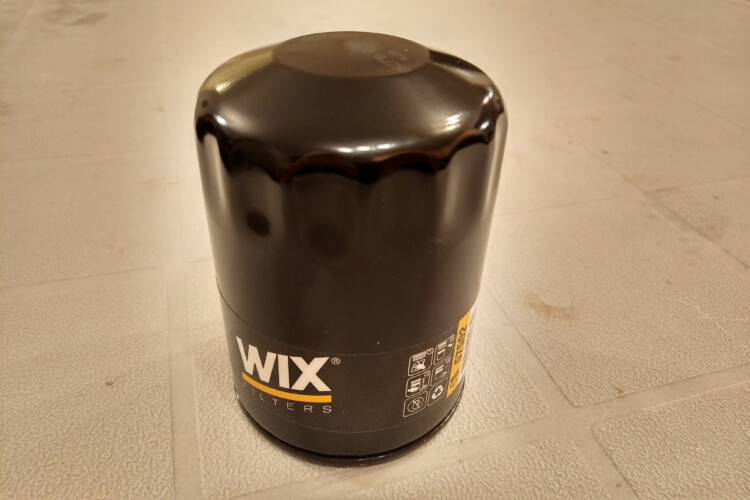
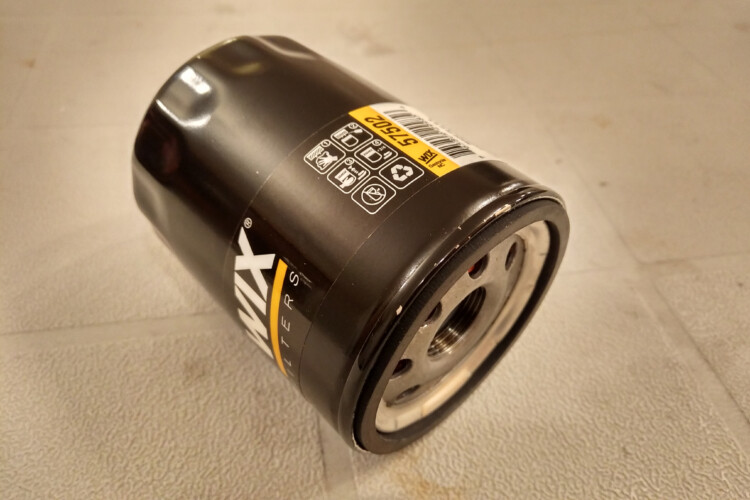
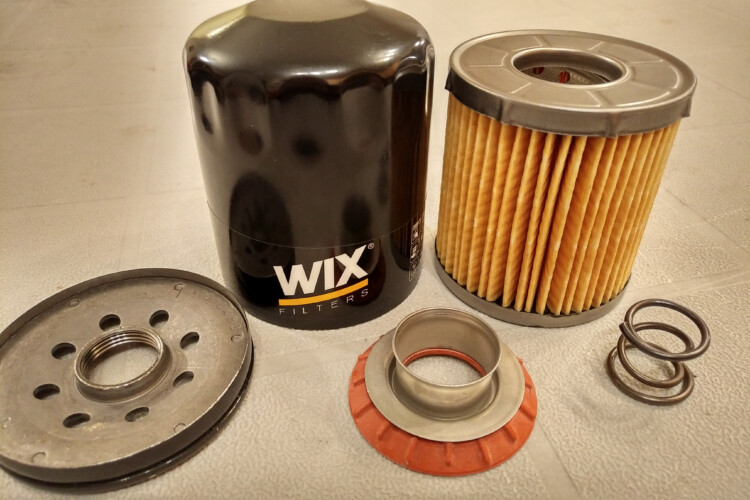
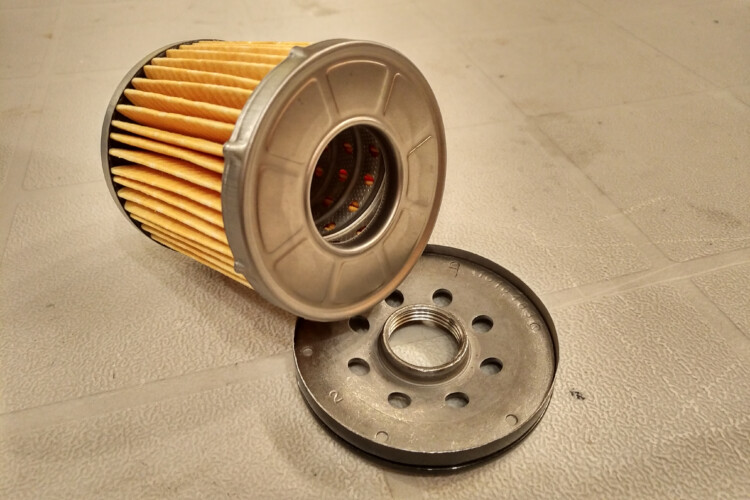
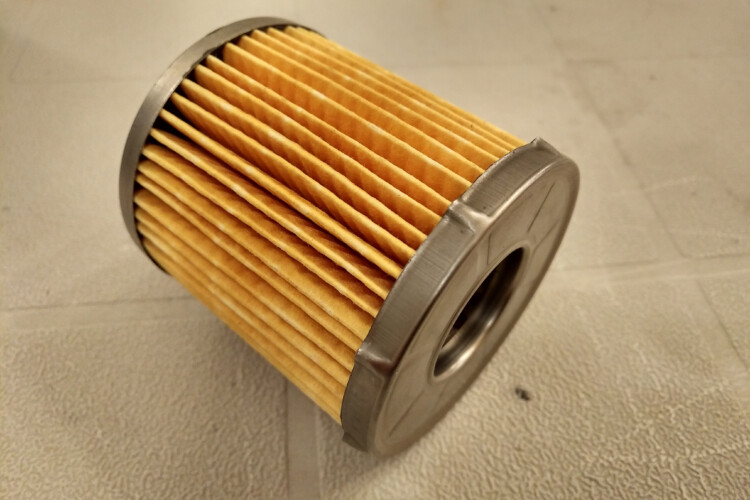
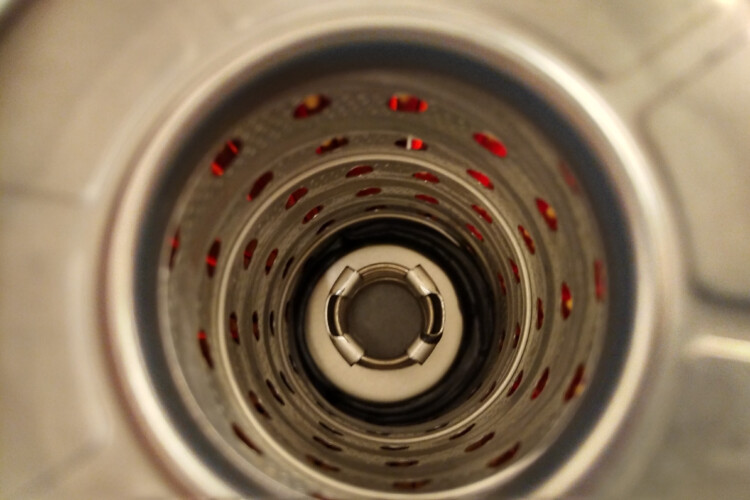
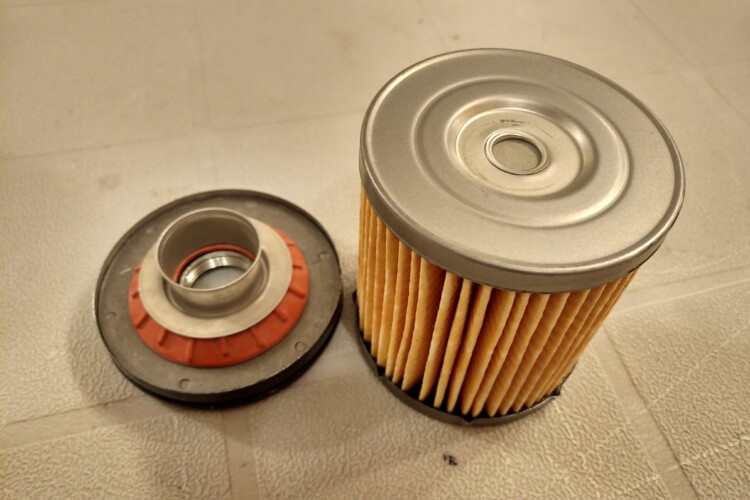

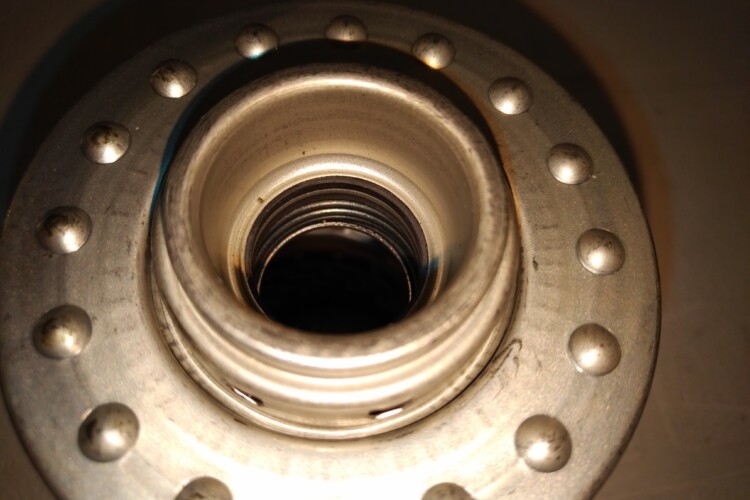
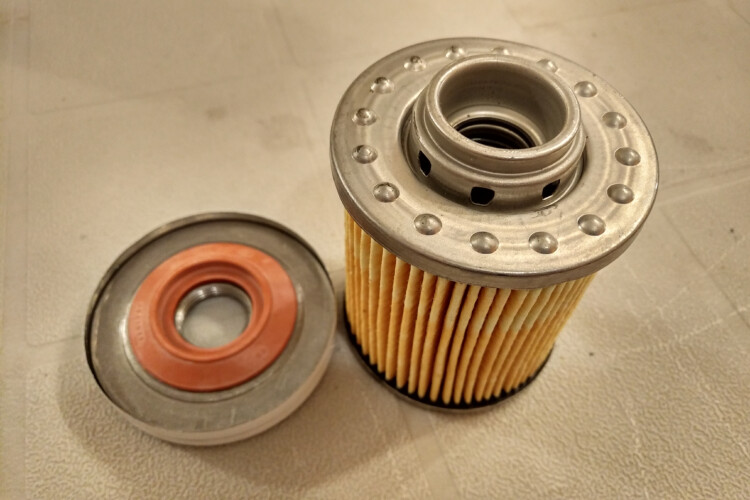
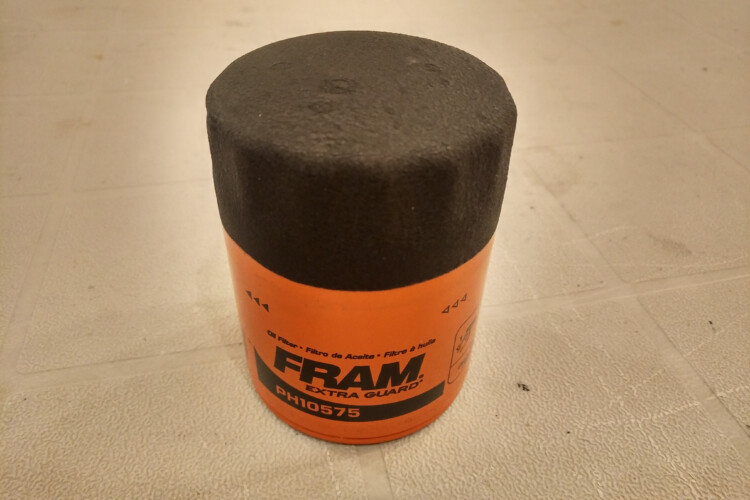
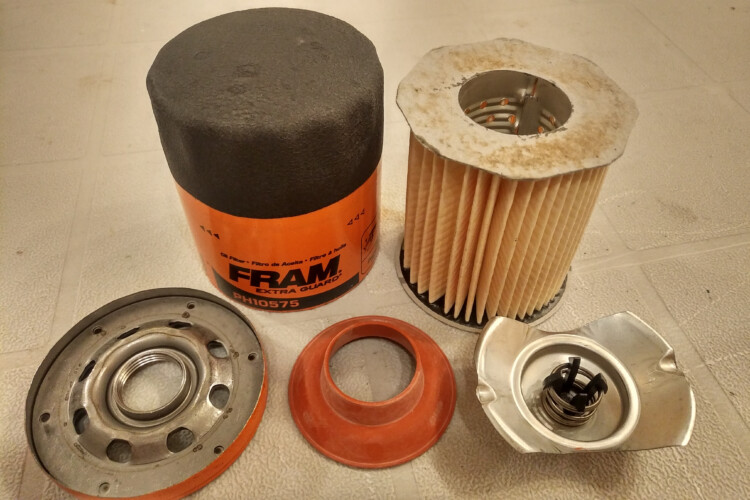
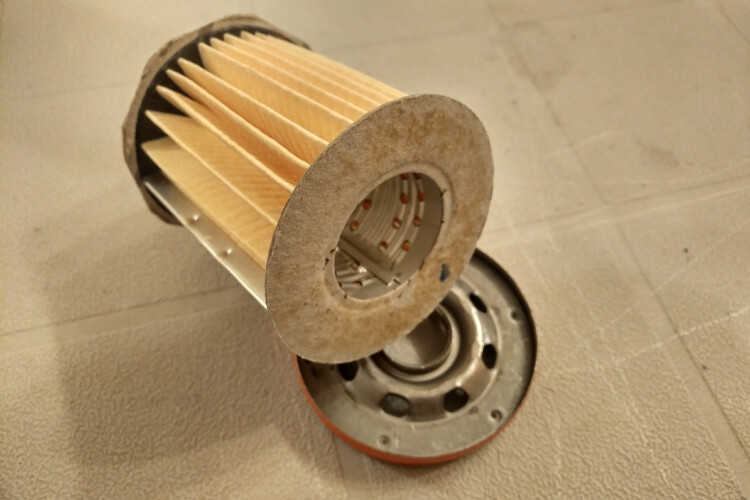

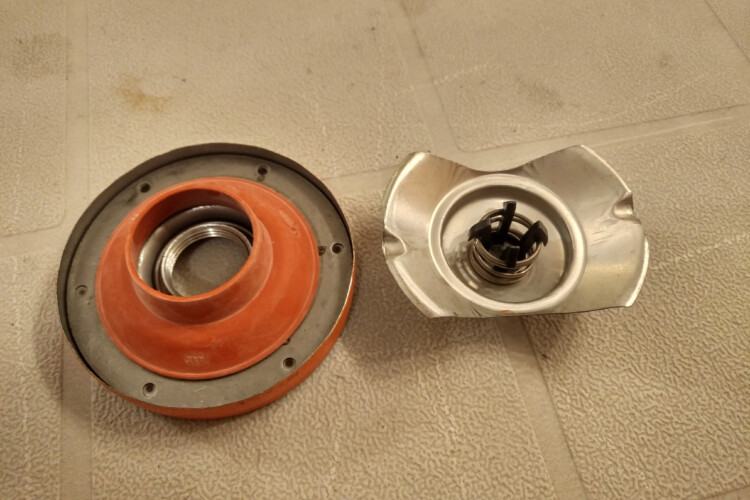





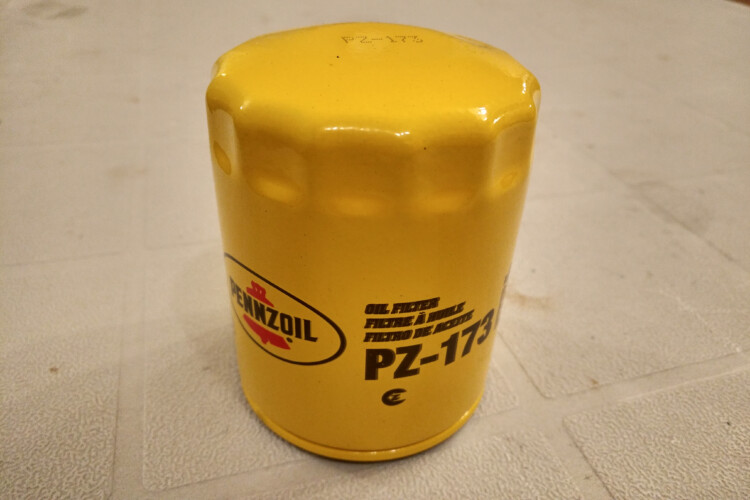
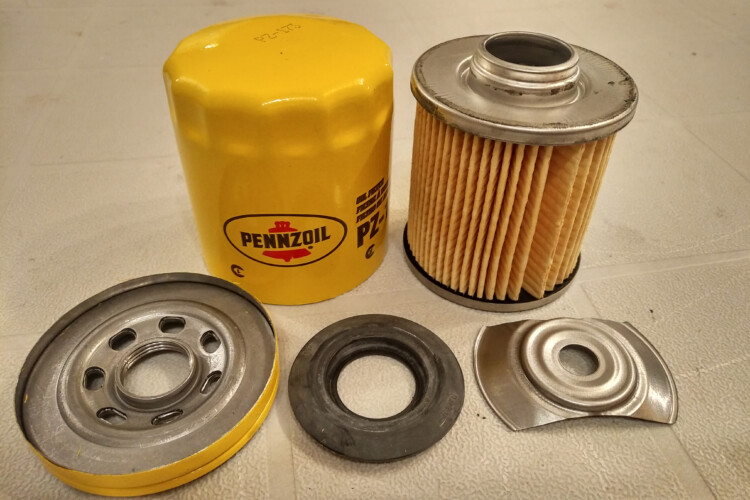
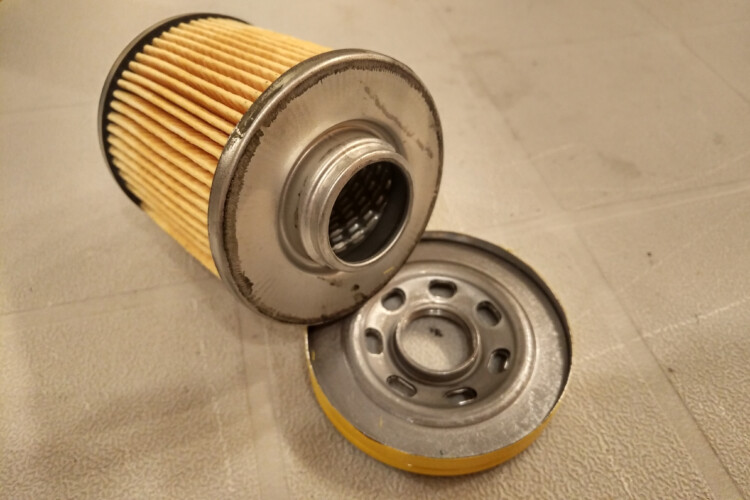
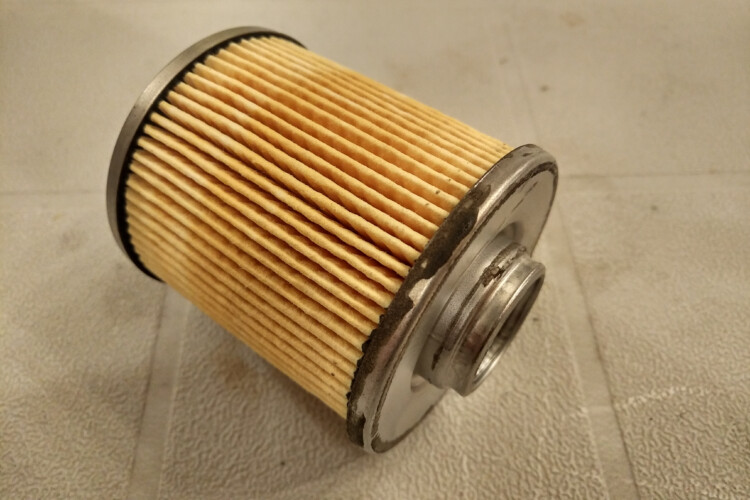
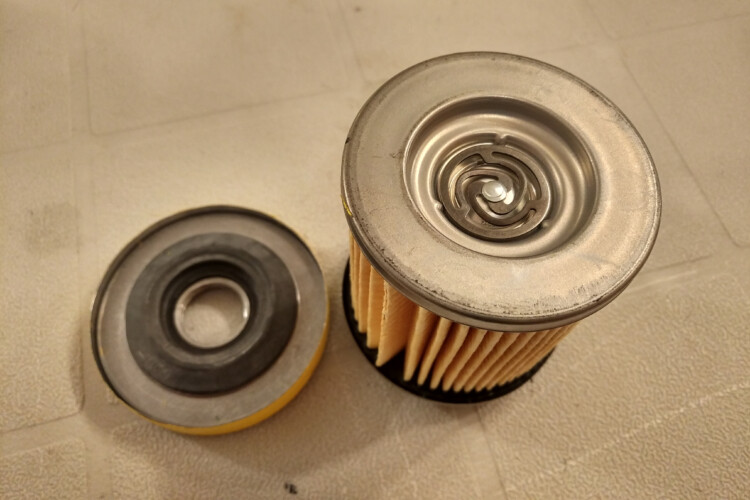
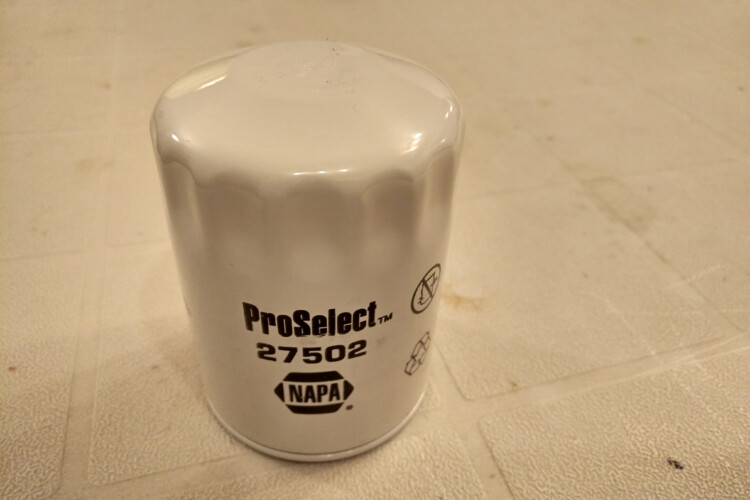

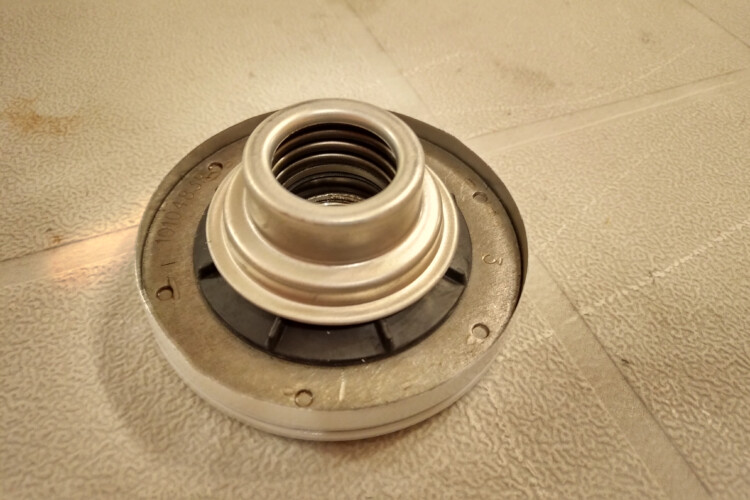
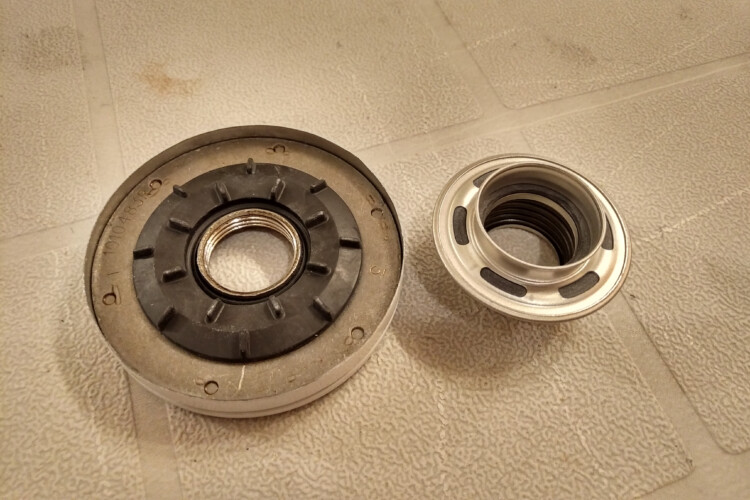
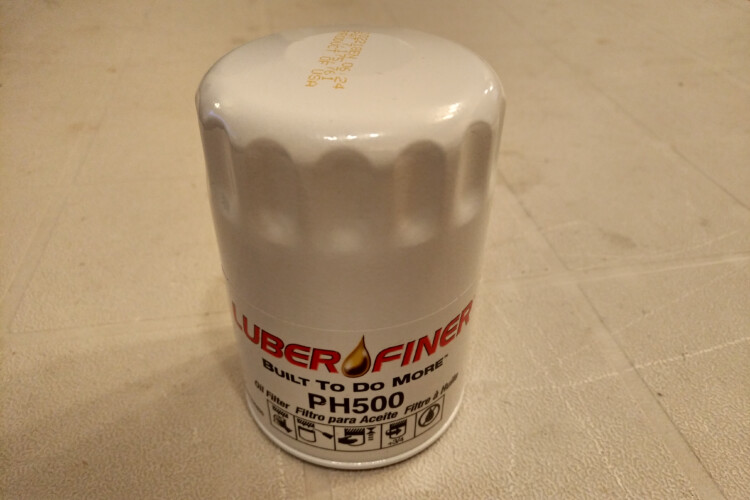
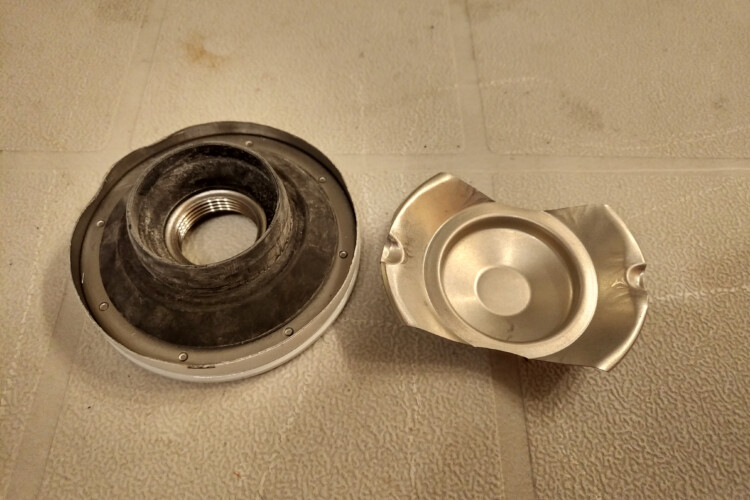
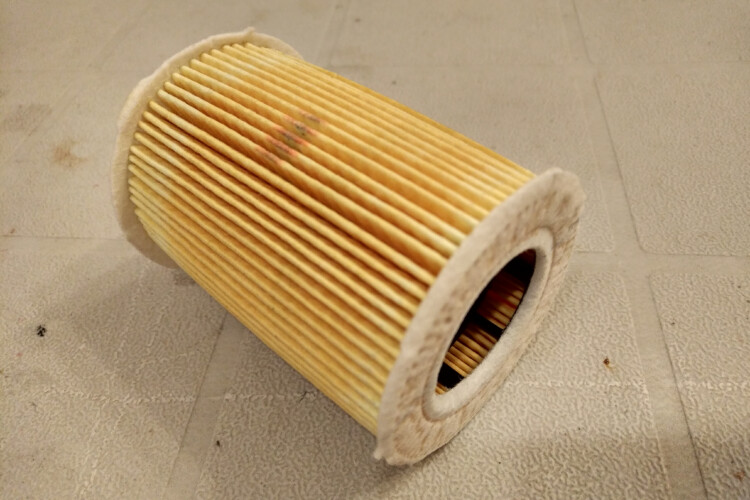
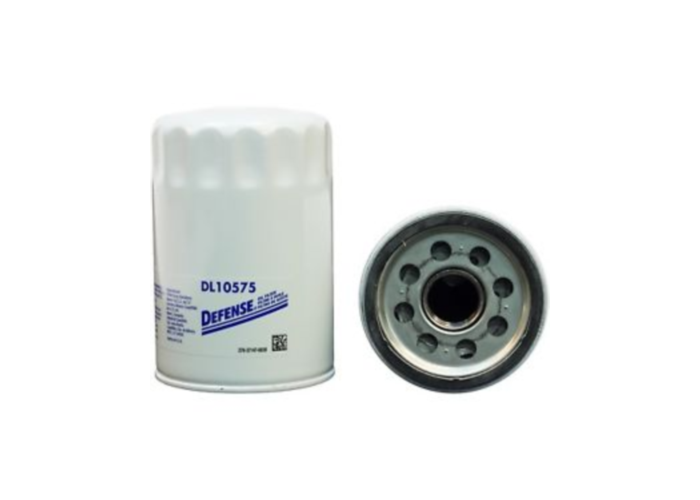

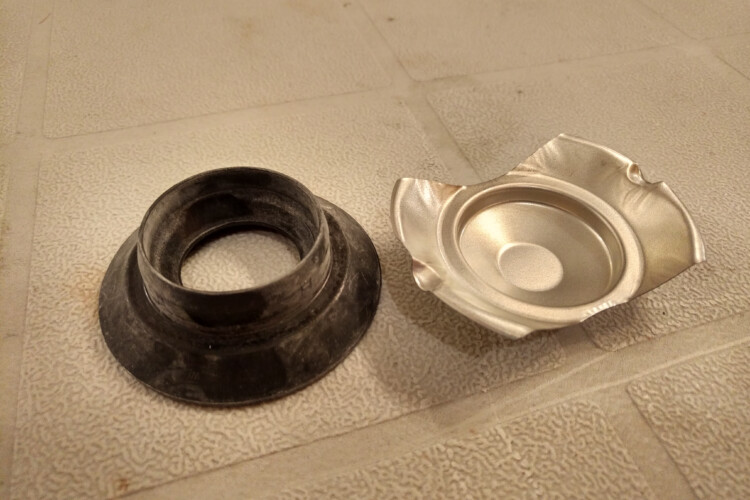
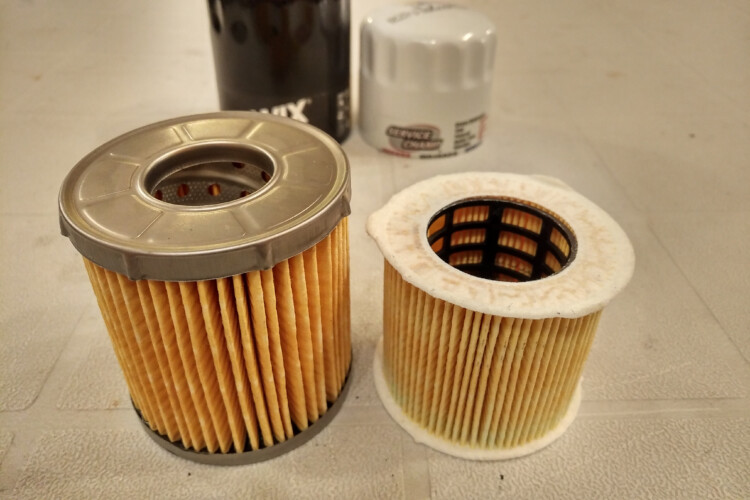
What a lot of work it must have been to write this!